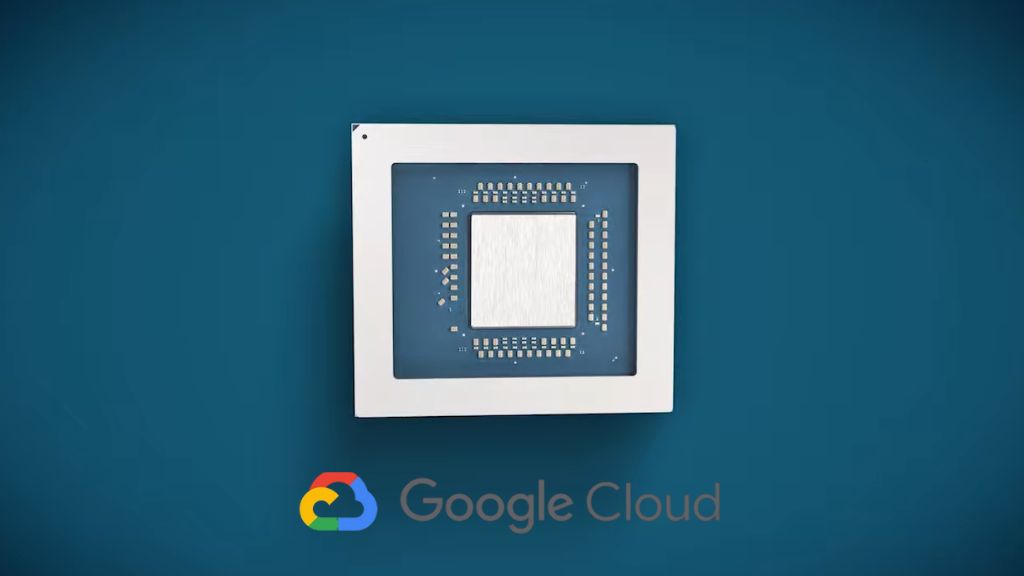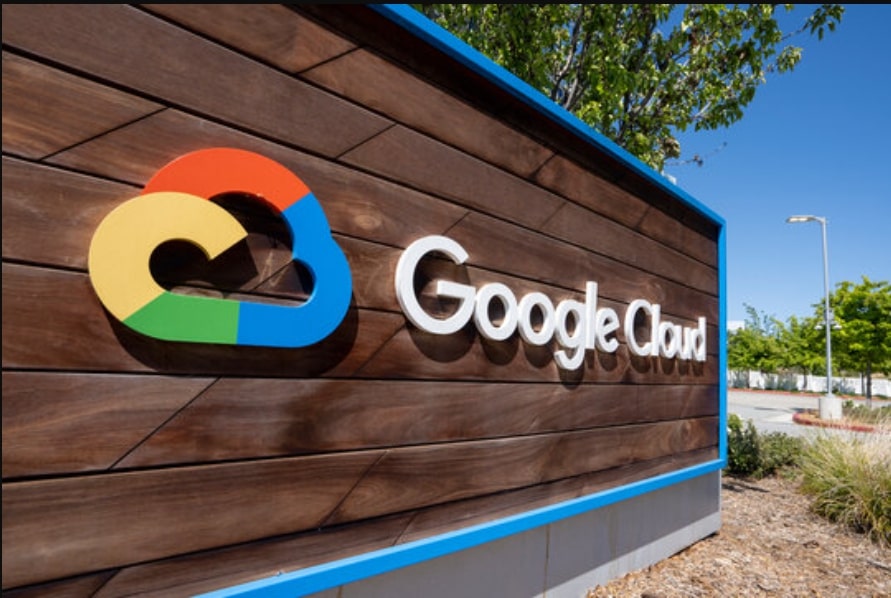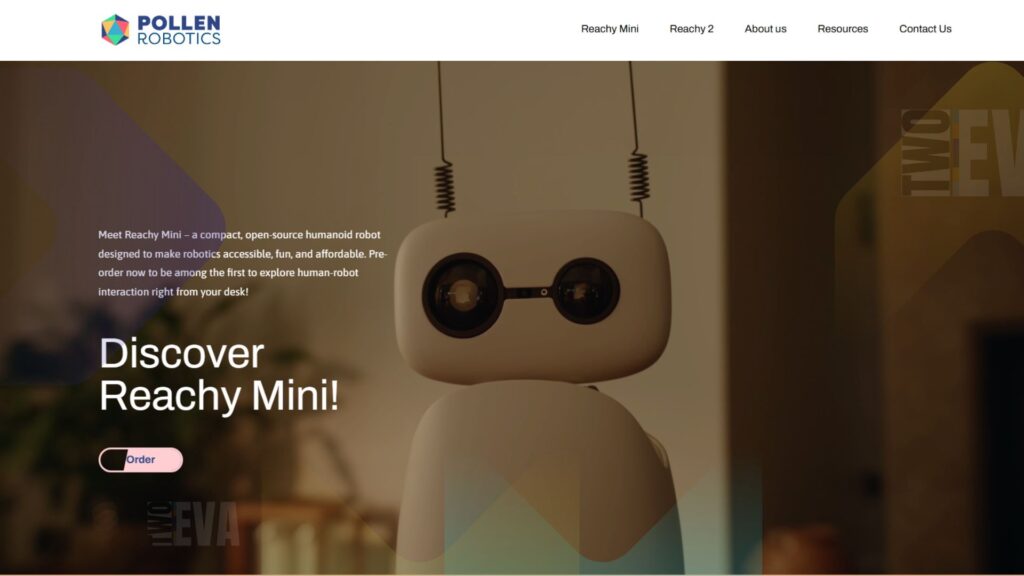Alphabet Inc.’s Google Cloud division made headlines on October 30, 2024, with a groundbreaking announcement: Spotify Technology and Paramount Global have signed agreements to utilize Google Cloud’s newly designed Axion chip. This innovative chip, developed using technology from Arm Holdings, aims to deliver enhanced performance and efficiency for cloud-based streaming services, posing a challenge to established players like Intel and AMD. With this new partnership, Spotify and Paramount hope to offer their users a next-level streaming experience, underscoring Alphabet’s growing presence in the highly competitive cloud computing landscape.
A New Power Player in the Cloud Arena
Google Cloud’s Axion chip enters a market dominated by Amazon Web Services (AWS), Microsoft Azure, and other leading cloud providers. The Axion chip is an Arm-based processor, a design renowned for its energy efficiency. Google Cloud has highlighted that the Axion chip is 60% more energy-efficient than conventional CPUs, which significantly reduces operational costs and environmental impact. Mark Lohmeyer, VP and General Manager of Compute and Artificial Intelligence Infrastructure at Google Cloud, expressed the company’s dedication to energy efficiency, saying, “Every watt saved on the Axion chip can power critical AI tasks.”
Unlike Google’s previous Arm offerings, this is its first fully Google-designed processor. While Amazon and Microsoft have also developed their Arm-based chips, Google’s Axion chip marks a notable shift, as it integrates seamlessly with Google Cloud’s infrastructure, making it an ideal fit for data-intensive tasks such as streaming and AI-driven operations. Lohmeyer added, “This is the first Google-designed Arm processor, and the first that we have fully brought into the overall Google infrastructure portfolio,” showcasing Google’s commitment to developing custom hardware optimized for its ecosystem.
Why Spotify and Paramount?
Spotify and Paramount’s choice to adopt Google’s Axion chip reflects their commitment to enhanced performance and user experience. Spotify, which has relied on Google Cloud since 2016, seeks to leverage AI capabilities for personalized content recommendations and improved content discovery. With a user base of over 574 million, Spotify aims to ensure a smooth and engaging experience. Paramount, on the other hand, is looking to expand its streaming capabilities, and the Axion chip offers an ideal solution to meet growing demands for high-definition and on-demand content. As cloud gaming and high-quality streaming gain traction, Paramount’s partnership with Google represents a strategic move in this direction.
In recent years, the cloud computing market has seen increased investment in specialized chips to improve performance. Traditional CPUs, while effective for general-purpose computing, often fall short when it comes to handling AI workloads and data-intensive applications. Reuters points out that while general-purpose CPUs may struggle with high-volume data tasks, Google’s Axion chip has been optimized to deliver faster processing speeds and higher data throughput, which is essential for large-scale streaming.
Technical Edge of the Axion Chip
The Axion chip’s unique architecture sets it apart. Built with custom enhancements that prioritize streaming and AI functionality, it offers several features critical for high-performance cloud computing. A major advantage is its custom architecture tailored for handling parallel processing, essential for real-time data handling in streaming and machine learning applications. This design provides Spotify and Paramount with the ability to scale without extensive hardware modifications, which is especially beneficial in today’s rapidly evolving digital landscape.
Another standout feature of the Axion chip is its memory bandwidth, which allows faster data access and transfer. In practical terms, this means users are likely to experience smoother streaming, with fewer interruptions and buffering issues. Furthermore, the Axion chip’s AI optimization enhances Spotify’s and Paramount’s ability to run machine learning models, which can lead to improved content recommendations and categorization—a key factor in today’s streaming-driven market.
In comparison to general-purpose CPUs, Google’s chip is designed for scalability, making it an excellent fit for cloud-based workloads. Business experts have suggested that this scalable design is crucial for companies that need the flexibility to adapt to market demands without having to overinvest in new hardware.
What’s in It for Spotify and Paramount Users?
For Spotify and Paramount’s millions of users, the Axion chip promises several direct benefits. Among them, improved content discovery, smoother streaming experiences, and faster load times rank highly. Spotify’s algorithms for personalized recommendations will receive a significant boost, as the Axion chip enables more rapid processing of user data to tailor music, podcast, and audiobook suggestions to individual tastes. Similarly, Paramount users can look forward to higher streaming quality and reduced buffering, crucial in an era when high-definition content is in high demand.
Additionally, the Axion chip allows for advanced AI features that enhance user interaction with the platforms. For example, Spotify might use these capabilities for improved voice recognition, making it easier for users to search for content. Paramount, meanwhile, could leverage the chip’s power to deliver interactive features in video streaming, adding new layers of engagement for viewers.
A Strategic Move in Cloud Computing

Google’s Axion chip underscores Alphabet’s ambition to expand its influence in the cloud computing space, traditionally led by AWS and Microsoft Azure. Although it may be a newer player in the custom chip market, Google’s Axion demonstrates how Alphabet plans to compete on both energy efficiency and performance, two crucial factors for companies managing massive data loads. Experts note that this move could signal a larger trend, as more tech companies look to develop in-house chips tailored to specific cloud needs rather than relying on conventional CPUs. The implications for competitors like Intel and AMD could be significant, as their dominance in the CPU market is now challenged by tech companies building alternatives suited to modern workloads.
For Spotify and Paramount, this partnership is both a competitive edge and a strategic alignment with a company that shares its vision of optimized scalable cloud infrastructure. According to Lohmeyer, “Google Cloud’s custom Axion chip is expected to be the primary offering for its customers going forward,” a statement that indicates Google’s confidence in the Axion’s market potential.
As Google continues to innovate and develop specialized hardware solutions, industry analysts predict we’ll see further partnerships with major brands seeking a powerful, energy-efficient cloud solution. The Axion chip’s debut could well mark the beginning of a new phase in cloud competition, where custom-designed hardware meets the exacting demands of modern digital services. For now, Spotify and Paramount’s move signals confidence in Google Cloud’s cutting-edge technology, potentially setting a trend for others in the industry.


















